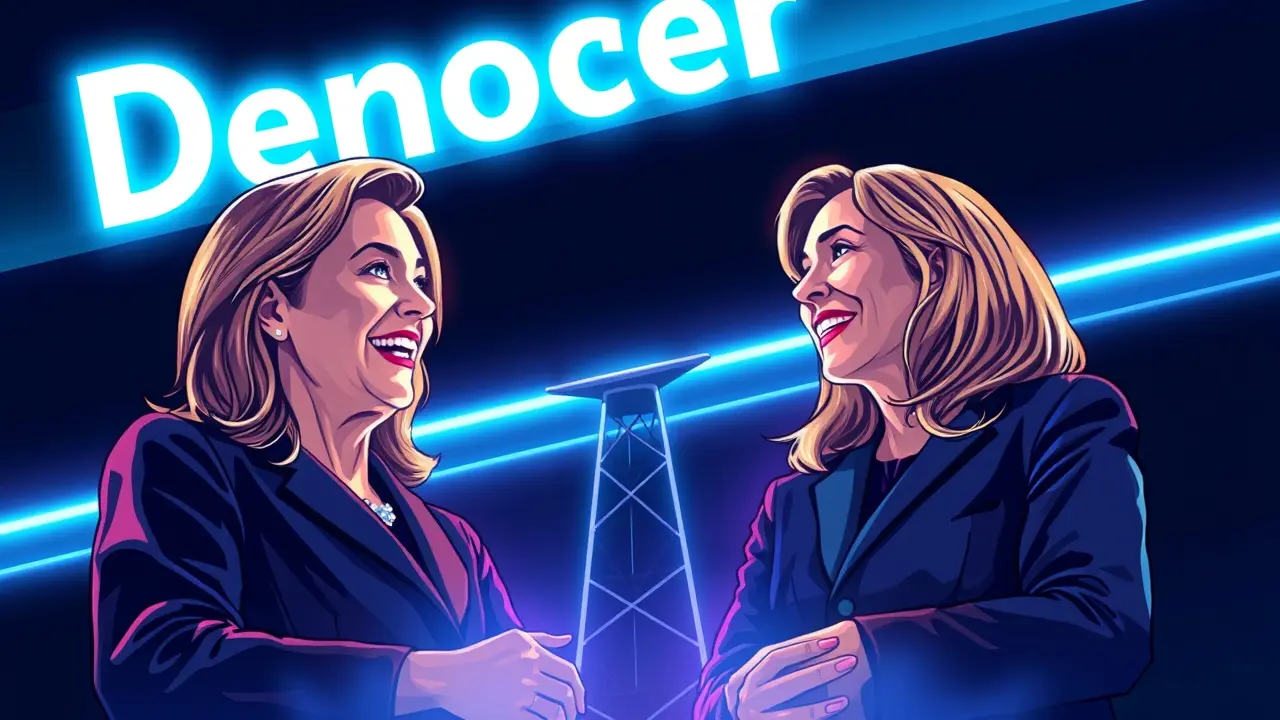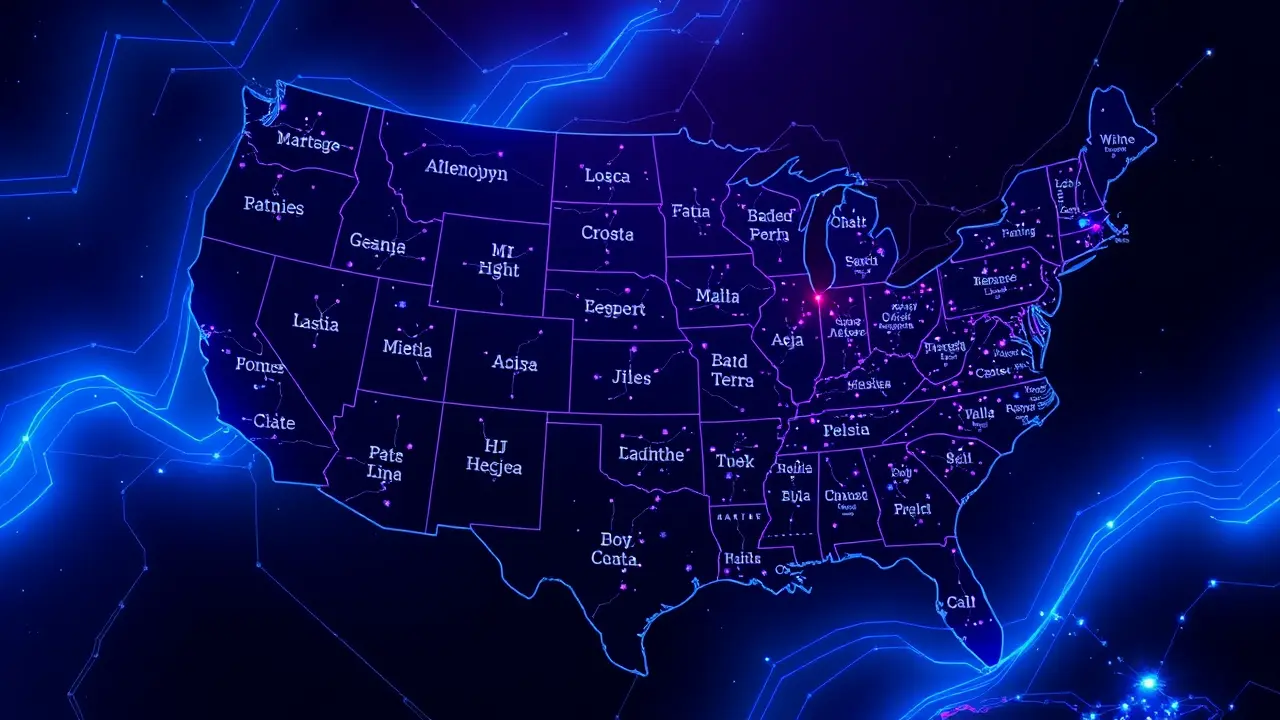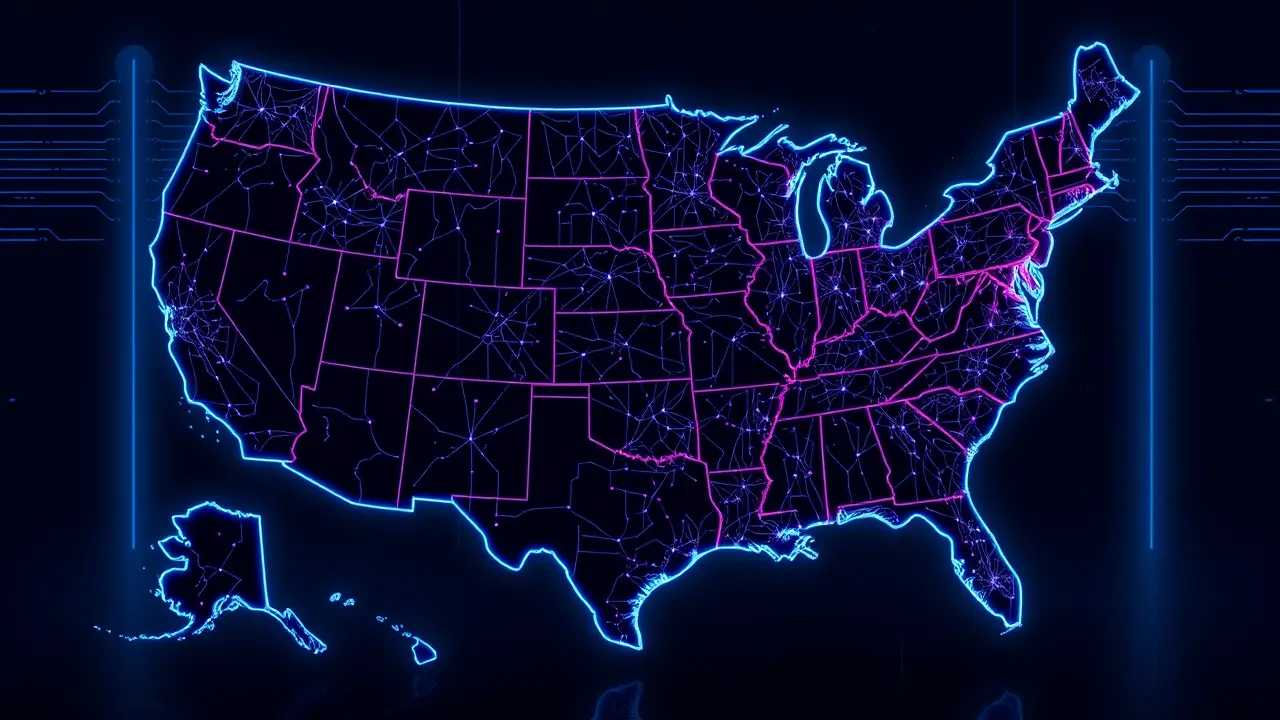
PoliticselectionsElection Campaigns
Democrats Spanberger and Sherrill plan to lower electricity costs.
MA
Mark Johnson
12 hours ago7 min read4 comments
Fresh off their gubernatorial victories in Virginia and New Jersey, Democrats Abigail Spanberger and Mikie Sherrill are immediately deploying their political capital to tackle one of the most potent kitchen-table issues that propelled them to office: soaring electricity costs. This isn't just a regional policy skirmish; it's a strategic opening salvo in the broader Democratic war for economic credibility heading into the 2026 midterms, a battle where energy affordability has become the new frontline.In Virginia, Spanberger, having narrowly outmaneuvered GOP Lieutenant Governor Winsome Earle-Sears, is rolling out her 'Affordable Virginia' plan with the precision of a seasoned campaign manager. Her strategy is twofold: first, a surgical strike on the bureaucratic red tape that strangles energy infrastructure projects, and second, a direct confrontation with the state's booming data center industry, demanding these power-hungry behemoths—clustered in Northern Virginia and increasingly around Richmond, cementing the Old Dominion as the world's data center capital—finally cover their true grid costs instead of socializing them among ordinary ratepayers.To bolster this, she's championing a decentralized energy revolution, calling for the rapid integration of rooftop solar and small-scale solar projects paired with battery storage systems, a move designed to enhance grid reliability while wresting control from monolithic utilities. Simultaneously, in New Jersey, Sherrill is executing a more dramatic, high-stakes playbook.She has vowed that on her very first day in office, she will declare an 'electricity state of emergency,' a powerful piece of political theater aimed at freezing utility rates and fast-tracking a massive build-out of cheaper, cleaner power generation, including solar and battery storage. But her most audacious gambit is a pledge to 'immediately develop plans for new nuclear capacity' in Salem County, promising to sit down with neighboring states to harness economies of scale for building new, cost-effective reactors.Sherrill has also joined a growing, bipartisan coalition of officials from other states in publicly excoriating PJM Interconnection, the nation's largest electricity grid operator, accusing it of gross 'mismanagement' and showing a blatant preference for coal and oil, framing it as a battle between a stagnant, corrupt old guard and a dynamic, clean-energy future. The political calculus here is undeniable.A recent Associated Press-NORC Center for Public Affairs Research poll found electricity bills were a 'major' source of stress for 36% of Americans, a statistic that Democratic strategists are betting can be a cudgel against Republican economic messaging. As ClearView Energy Partners astutely noted in a pre-election analysis, 'We suspect the performances of Sherrill and Spanberger could play into broader [Democratic] party thinking about economic policy,' with Virginia, in particular, serving as a perennial national bellwether.Of course, the Republican counter-offensive, led by President Trump, is already in full swing, with Truth Social posts warning that a reliance on renewables will cause energy costs to 'SOAR' and promising that voting Republican is the only path to lower bills. This sets the stage for a classic political duel: government-led intervention and clean energy investment versus deregulation and fossil fuel allegiance.The ripple effects are already being felt beyond these two states. In Georgia, Democrats Alicia Johnson and Peter Hubbard successfully ousted Republican incumbents on the state's powerful Public Service Commission, running on platforms championing fair rates and renewables, proving that the energy affordability message has resonance deep in traditionally red territory.Even in New York City, where winning Democrat Zohran Mamdani didn't center his mayoral campaign on energy, he still opposed a contentious underwater natural gas pipeline and touted public transit as a climate solution, showing the issue's pervasive reach. The ultimate prize, however, is 2026.The Democratic party is watching Virginia and New Jersey as live-action laboratories. If Spanberger and Sherrill can successfully translate their campaign rhetoric into tangible rate reductions and a more resilient grid, they will provide a powerful, replicable blueprint for candidates nationwide. If they falter, they risk ceding the potent issue of energy costs to the GOP for cycles to come, making these state-level energy battles nothing less than a proxy war for the soul of the American economy.
#featured
#electricity costs
#elections
#energy policy
#Virginia
#New Jersey
#Democrats
#Spanberger
#Sherrill
Stay Informed. Act Smarter.
Get weekly highlights, major headlines, and expert insights — then put your knowledge to work in our live prediction markets.
Related News
© 2025 Outpoll Service LTD. All rights reserved.














